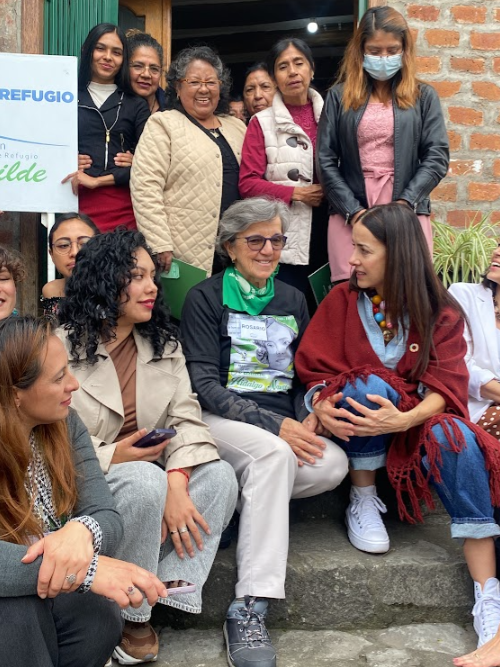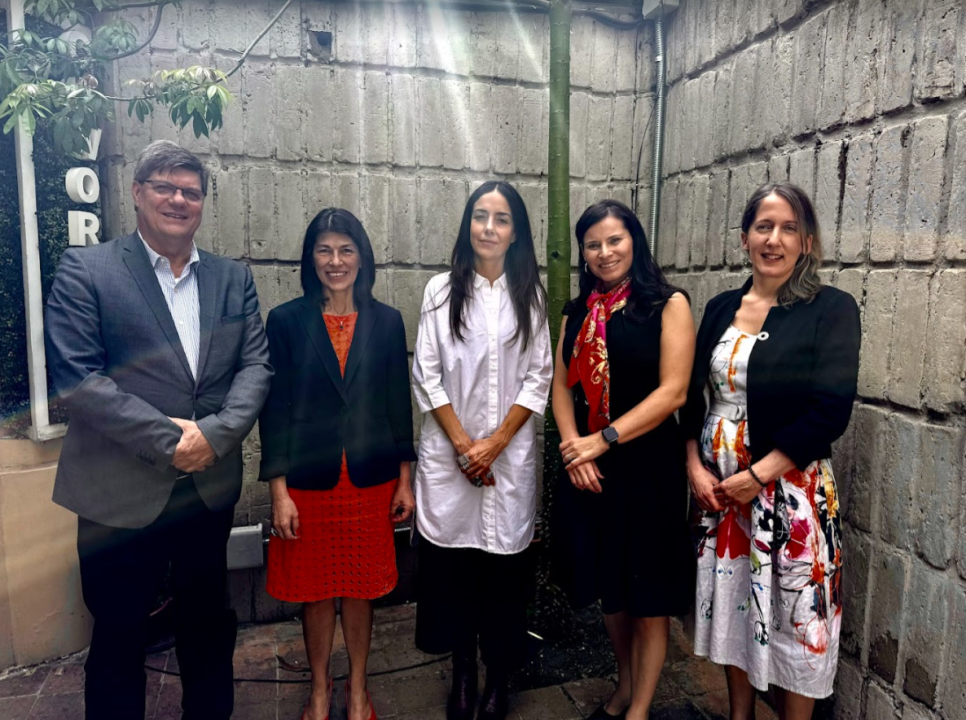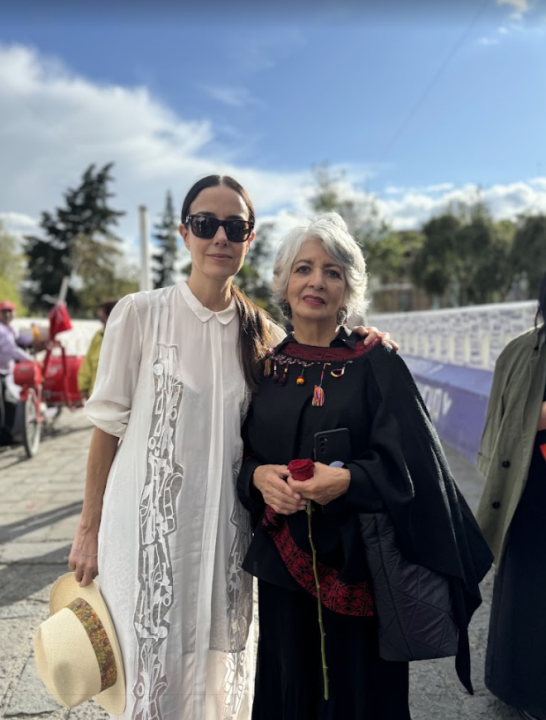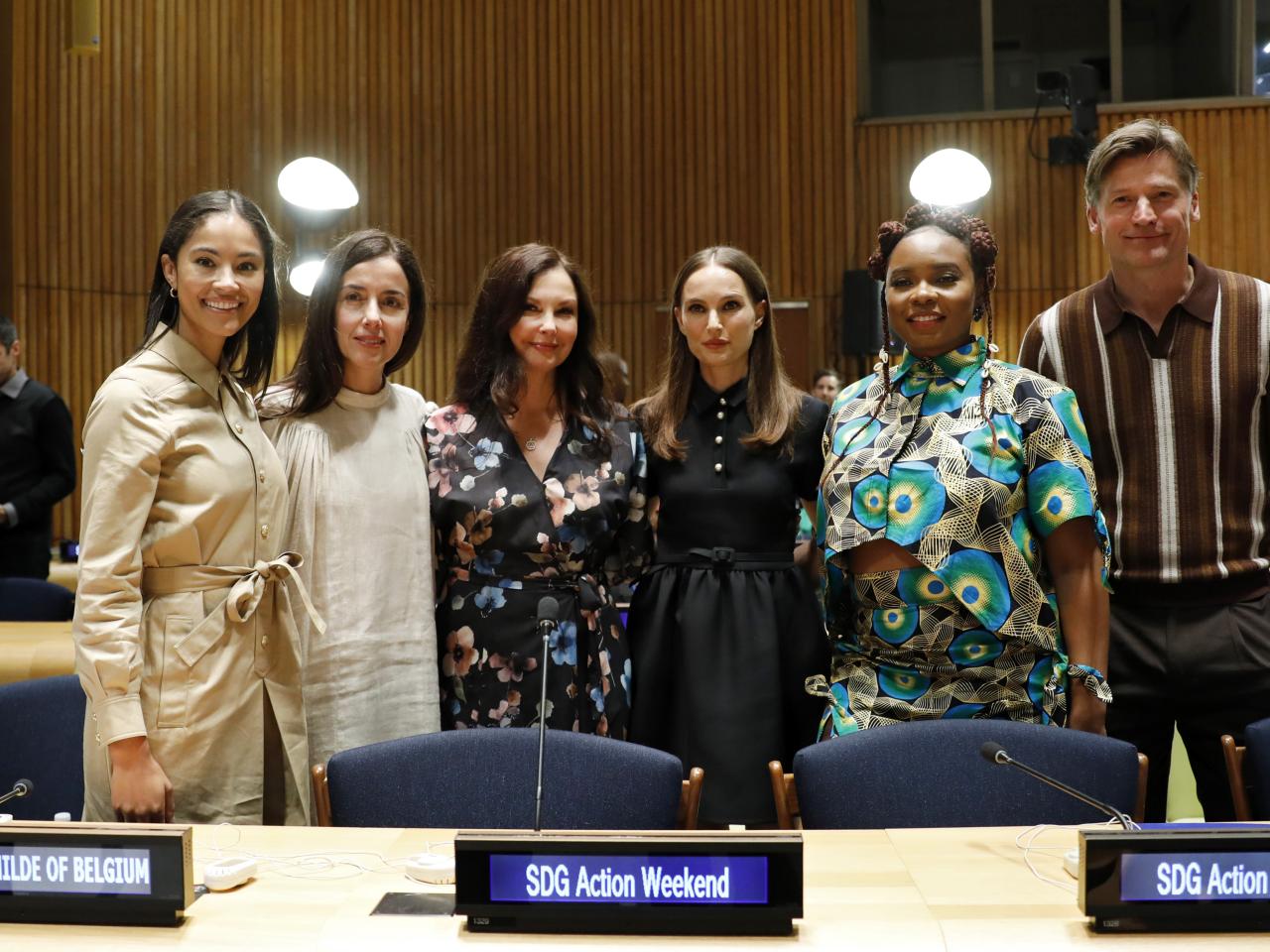“It’s only through memory that we can dream and act for a different future” – UN Global Advocate Cecilia Suárez reflects on her time in Ecuador
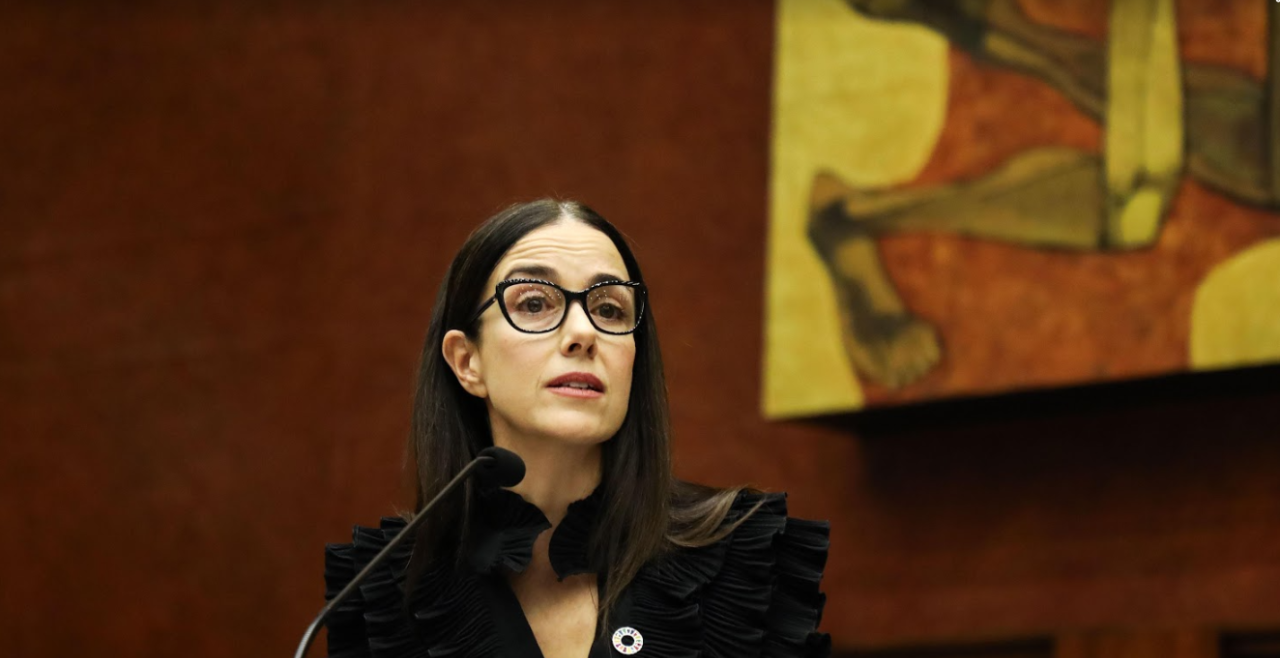
QUITO, Ecuador – During the 16 Days of Activism against Gender-Based Violence in November, actress and United Nations Global Advocate for Spotlight Initiative, Cecilia Suárez, visited Ecuador to raise awareness of gender-based violence and speak with the women, men, survivors and policymakers working to make the world safe for women and girls. Spotlight Initiative is implementing a 3-year programme in Ecuador with the support of the European Union and other partners.
Watch excerpts from the interview above.
Over the course of six days, Ms. Suárez met with representatives from government, civil society, media and the United Nations. She addressed the National Parliament on the urgent need to support women and dismantle harmful norms and behaviours, completed a moving “memory map” of Cuenca honouring the lives of femicide victims, spoke with survivors and staff at a women’s refuge, and more.
Below, she reflects on the journey, what she learned and how we can all be a part of the solution.
What is one moment that will stay with you from this visit?
It’s hard to choose one because there’s plenty of those moments. I can certainly mention three. I always feel very close to my heart the visits to refuges, because it’s really seeing the problem, being able to connect with that, to listen to the women, to see and hear the challenges. It’s important to convey that when I encounter people who can do something about that. That’s the true reason why we all are here, it’s them, so that is very close to my heart.
Doing the memory mapping with Sonia [Salamea] in memory of her lost daughter, Cristina [Palacios Salamea], victim of femicide, was very special because of Sonia’s generosity in sharing the memory of her daughter, of the pain she has gone through and continues to go through, and her generosity in letting us know that this has to change.
Also, planting the tree today [in memory of the victims of femicide at the new Warmikunapa Sacha section of the Metropolitan Park in Quito]. Although it’s a symbolic act, it speaks to memory and the importance of memory because it’s only through memory that we can dream and act for a different future. If we forget, we don’t have the tools to change. That’s the reason why memory is so important. We honour them, we remember their life, their names, and we fight for women to be able to enjoy life without violence.
Is there an innovative approach to eliminating violence you’ve seen in Ecuador that’s stuck with you?
I think the social approach [to ending violence] through church, through your specific religious practice, is very important. We have to appeal to that and talk to religious leaders about their role in creating new masculinities and communicating with girls and women on their rights, on what is not acceptable and how they deserve to live a life free from violence.
How can we engage men and boys in the push to eliminate violence against women and girls?
When we look at the problem, it belongs to men. It is always talked about as a problem that affects women – and it does, I understand why it is framed that way – but the reality is that the origin of this problem comes mostly from men. We need to learn what’s happening inside them. Why do they not feel free to share how they are feeling? What are their doubts, their fears, what makes them feel uncomfortable? There’s a whole set of things that we don’t know about men and that are expected of them without them ever being asked. I think we need to listen to them, we need to invite them to feel safe to speak about what’s going on with them, and from there, we can begin to work together on what is affecting them that creates this outcome that affects women and men.
Do you see art and culture playing a role in creating these new masculinities?
Of course. The way we talk is so important. The models that we have and that shape culture and art, that shape the way we portray life, are so important. To see simple things like women being in roles of power or that influence society – start with that. But there’s so much to do. We need women telling their own stories. We need female producers. We need men to open that space as well, so that those creators can come in. If they don’t create that space, we will open it – because that space belongs to us as well.
Edited slightly for length and clarity.

